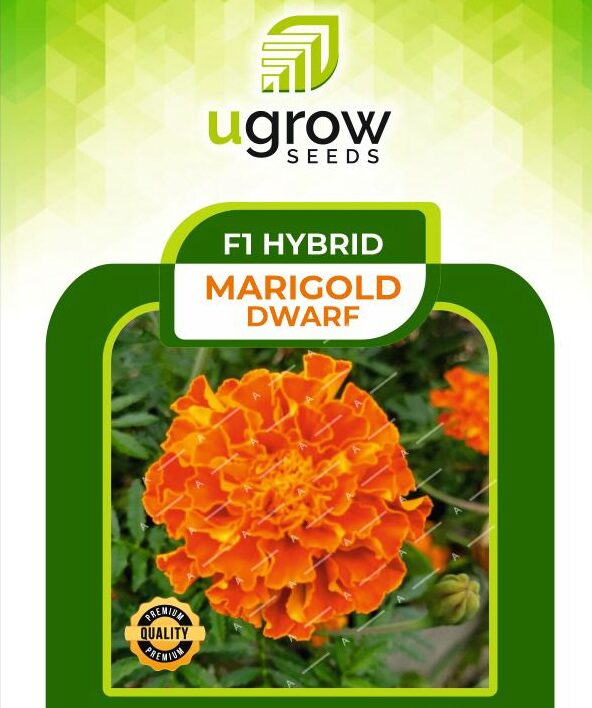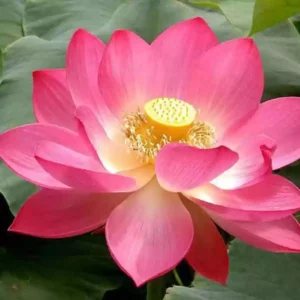Marigold Dwarf Flower Seeds ( Hybrid)
₹ 40.00
Marigold Dwarf Flower Seeds
About this item
- Number of Marigold Dwarf Seeds: (30-40 Seeds)
- Sowing method: Direct
- Germination Time: 5-6 Days from sowing
- Height: 15-18cm
- Nursery: Nursery
- Distance: 15cm
Free delivery on order above Rs 200
Images are for reference purposes only. Actual product may vary in shape or appearance based on climate, age, height, etc. The product is replaceable but not returnable.
Description
Dwarf marigolds, often referred to as French marigolds (Tagetes patula), are a popular variety known for their compact size and vibrant, colorful flowers. Here’s a guide on how to grow dwarf marigolds:
1. Climate: Dwarf marigolds thrive in full sunlight. They are warm-season plants and prefer temperatures between 70°F to 80°F (21°C to 27°C).
2. Soil: These marigolds are not very demanding when it comes to soil type, but they prefer well-drained, fertile soil. A loamy soil enriched with organic matter is ideal.
3. Planting:
- Seeds: You can start dwarf marigolds from seeds indoors 6-8 weeks before the last expected frost, or sow them directly in the garden after the danger of frost has passed. Plant the seeds about 1/4 inch deep in the soil.
- Transplants: Alternatively, you can purchase nursery-grown dwarf marigold plants and transplant them into the garden after the last frost.
4. Spacing: Space dwarf marigold plants according to the specific variety’s recommendations. Generally, they should be spaced around 8 to 10 inches apart.
5. Watering: Water dwarf marigolds regularly, keeping the soil consistently moist but not waterlogged. Once established, they are relatively drought-tolerant.
6. Fertilizing: Dwarf marigolds are not heavy feeders. You can apply a balanced, all-purpose fertilizer during planting. Avoid excessive fertilization to prevent lush foliage with fewer blooms.
7. Deadheading: Pinch off spent flowers regularly to encourage continuous blooming and prevent the plant from going to seed too soon. This will also keep the plant looking tidy.
8. Pests and Diseases: Dwarf marigolds are generally resistant to many pests, but occasional issues with aphids or spider mites may occur. Keep an eye on your plants and treat any pest problems promptly. Marigolds are also known for their ability to repel nematodes in the soil.
9. Mulching: Applying a layer of mulch around the plants helps conserve moisture, suppress weeds, and maintain a more consistent soil temperature.
10. Container Gardening: Dwarf marigolds are well-suited for container gardening. Use well-draining potting mix and ensure that the containers have drainage holes. This allows you to enjoy their vibrant blooms on patios or balconies.
Remember to check the specific care recommendations for the dwarf marigold variety you are growing, as there may be slight variations in requirements. Always refer to the instructions on seed packets or plant tags for the most accurate information.
Specification
Additional information
| Quantity | 10 |
|---|














Reviews
There are no reviews yet.